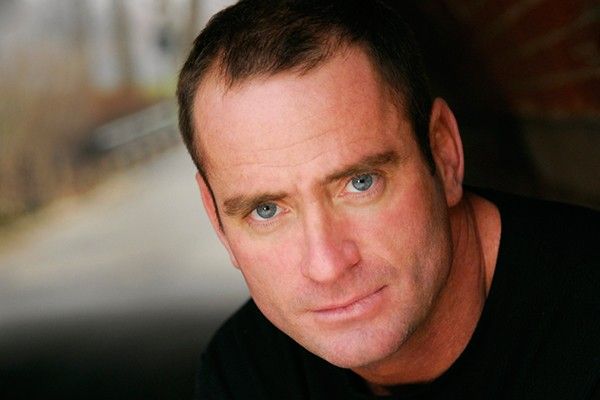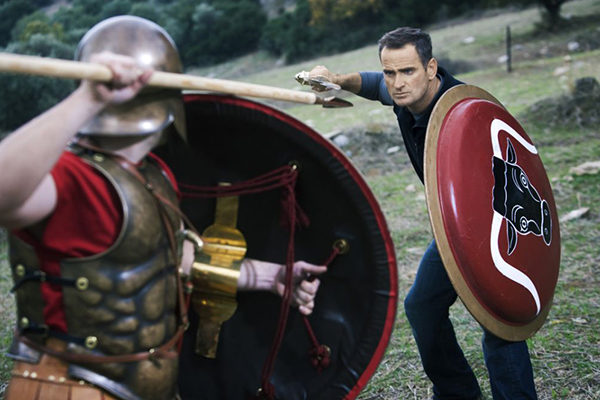‘Never let your comrade down’
January 22, 2017 | 3:42pm

Former Warriors host and US Special Forces legend Terry Schappert shares his views on the Asia’s Special Forces series and the Philippine military forces.
In the words of former Warriors host and US Special Forces legend Terry Schappert, his greatest fear on military training and combat missions is letting a comrade down, “it would have been the hardest thing to live with.” Drawing from his personal experience in the military, Terry shared that the best way to combat is to train hard and always be prepared when things get really bad during a mission.
“But as long as you do as much homework as you can, work as hard as you can, when it does go bad and it’s going to go bad, you’ll be okay. I always never wanted to let down my friends,” Terry told the STAR in an exclusive phone interview while recently filming History Channel’s Asia’s Special Forces in Singapore.
The Asia’s Special Forces series, an action-packed invasion into the world of Asia’s elite military forces, exposing their grueling training and advanced combat capabilities, has been repackaged into four episodes on Jan. 22 and 29 on History Channel with the inclusion of Terry as a host. He will give insights and show how tough Asia’s Special Forces are.
The Special Forces units which will be featured in the Series 1 and 2 of the show are: Malaysia Grup Gerak Khas; Philippines – Marine Recon; Thailand – Marine Recon; Philippines – Scout Rangers; Sri Lanka – Long Range Reconnaissance Patrol; and Taiwan – Marine Recon.
Terry is a former Green Beret, having served in the US Special Forces for 23 years and has been deployed in training and combat missions in various countries, including the Operation Iraqi Freedom. He is an expert on small arms, demolition, conventional and unconventional military tactics and combat medicine. His hosting stints include Discovery’s Dude You’re Screwed (Survive That outside of the U.S.) and History Channel’s Warriors with Terry Schappert in which he traveled the globe and experienced the world’s historic warrior cultures and rituals.
Terry detailed in a phone interview with The STAR his views on the Asia’s Special Forces series and the Philippine military forces:
How would you compare Asia’s Special Forces to the US Special Forces in terms of training and combat capabilities?
“The series I’m doing, it’s sort of an analysis from the American Green Beret point of view. So, the big thing that we’re talking about is how the military selects the guys to be in those units. Quite frankly, it’s almost the same to what we go through in the American military. The selection process is very similar to the whole goal, wherever you are, whether it’s in the Philippines, Thailand, Malaysia or America. It is to really, really make it very physically and mentally challenging for the guys. We also try to find out their problem-solving abilities and probably, the most important thing at the end of the day — their teamwork. It’s not good enough to be good by yourself. Everybody will all work together as a unit. No one goes into combat alone.”
How do you handle tough situations in training and combat missions or when facing life-or-death situations?
“Every human being walking on the planet has a seeded strength in them. I’m often told that people, everybody has steel in them. Sometimes, it just has to be sharpened. And so I think, everybody has the potential to do those things. Handling tough stuff is part of what we go through. Some people are better at it than others. When you go through the Green Beret selection, you’ve already figured out how tough you are and what you’re capable of. As time goes on, you spend a lot of time in the field, you go on deployment and you go to combat. You then rely not just on the kind of, sort of inherent trait you had but also experience. So actually the best thing to do is trust, to always take a step back if you can and see the big picture. And then you can make a better decision on what would happen.”

‘Every human being walking on the planet has a seeded strength in them.’
What was the most challenging or unforgettable stint you did in your entire military career?
“If I had to think of one physical challenge, there’s too many. But the most challenging is losing a friend in combat. Leaving people that you love, that’s the worst. It’s challenging that you’ll get through that and to not let it crush you.”
What are the qualities and combating techniques that stood out in the Philippines Special Forces as seen in the Philippine Marine Recon and Scout Rangers episodes?
“Whether you are part of the reconnaissance unit or the Scout Rangers, the qualities are the same — mentally and physically tough, adaptive thinking and teamwork. If you have guys that have those qualities, any mission is possible.”
Any piece of advice for aspiring Special Forces members and trainees?
“I think the biggest piece of advice that I’ve given most to people before — once you make the decision, you do it. Once you do your soul-searching and figure out that’s what you wanna be, don’t quit. Make your decision before you show up to that training so that you won’t quit. So, I always made a little contract with myself. Every time I went through anything, whether it was ranger school or Special Forces course or any other difficult training, I would give myself two options — I would walk across that stage and graduate, whether it’s putting a beret on my head or having a Ranger tab. Or they take me home on a stretcher. If you get hurt and can’t continue, that’s honorable. If you quit, you’re gonna have to live with that for the rest of your life. So make sure you know what you’re gonna do before you go and then, do not quit. And I guarantee you, you’re gonna make it.”
(Asia’s Special Forces with Terry Schappert airs Sundays, at 7 p.m. and 7:30 p.m. on History. History is available on SKYcable Channel 7, Cable Link Channel 43, Dream Satellite Channel 30, Destiny Cable Channel 57 and Cignal Channel 125. History HD is available on SKYcable Channel 165).
BrandSpace Articles
<
>
- Latest
- Trending
Trending
Latest
Trending
Latest
Recommended
January 25, 2025 - 12:00am
January 24, 2025 - 12:00am
January 21, 2025 - 12:00am


















 Exclusive
Exclusive







